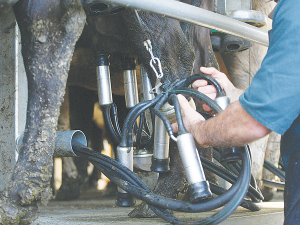There's been a swift and positive response from the red meat and dairy sectors to the Government's belated announcement to free up visa arrangements for up to 9,000 migrant workers in the primary sector.
A much simplified system will be introduced for these people to gain NZ residency - something industry groups have been pleading with Government to fo for months due to labour shortages right across the primary sector. It follows an earlier announcement that will see quarantine free travel for RSE workers from Samoa, Tonga and Vanuatu.
Meat Industry Association chief executive Sirma Karapeeva says the announcement will deliver much needed certainty to the industry - especially in respect of halal slaughtermen.
"Halal processing is a core part of the New Zealand meat processing industry with approximately 43% of New Zealand total red meat exports halal certified for Muslim consumers in both Muslim and non-Muslim countries," she says. "Without halal butchers, there is a real potential that plants would be forced to reduce value-add processing or decide to not save certain products."
But Karapeeva says the decision is only part of the solution and the industry is seeking a more permanent solution that will simplify the entry of migrant halal butchers - such as a special visa.
The move has also been welcomed by DairyNZ with chief executive Tim Mackle saying it's pleasing to see Government acknowledging the pressure farmers are under, due to being short-staffed, and recognise the critical role international workers play on NZ farms.
"While this decision is positive, it doesn't fully address the scale of the staff shortages on farm - dairy farmers are still short of an estimated 2,000 to 4,000 workers," Mackle says.
Agriculture Minister Damien O'Connor agrees and says immigration is one way to source people. However, he adds there is a need to attract more New Zealanders into life on the land and our primary sector supply chains.



















